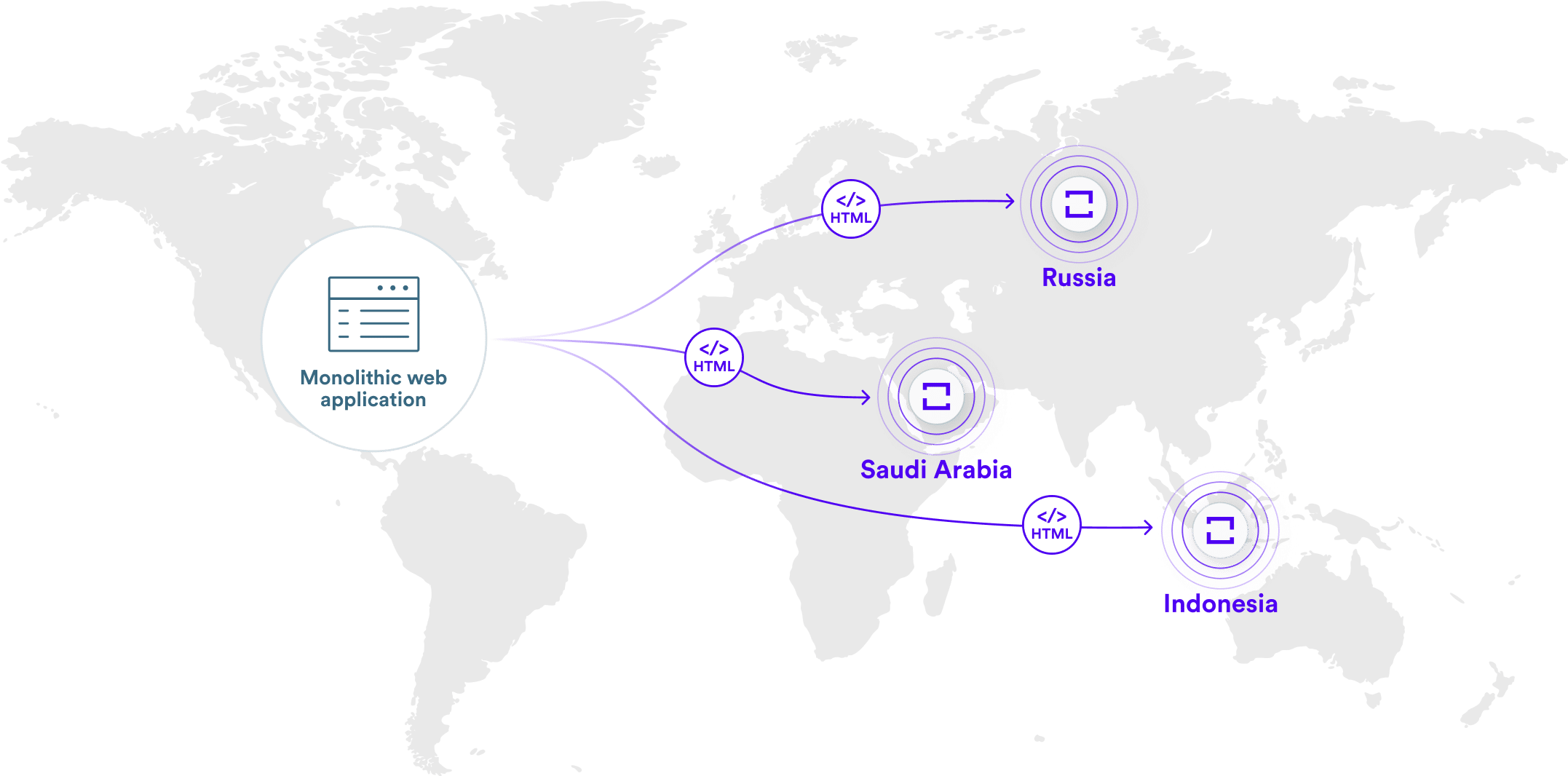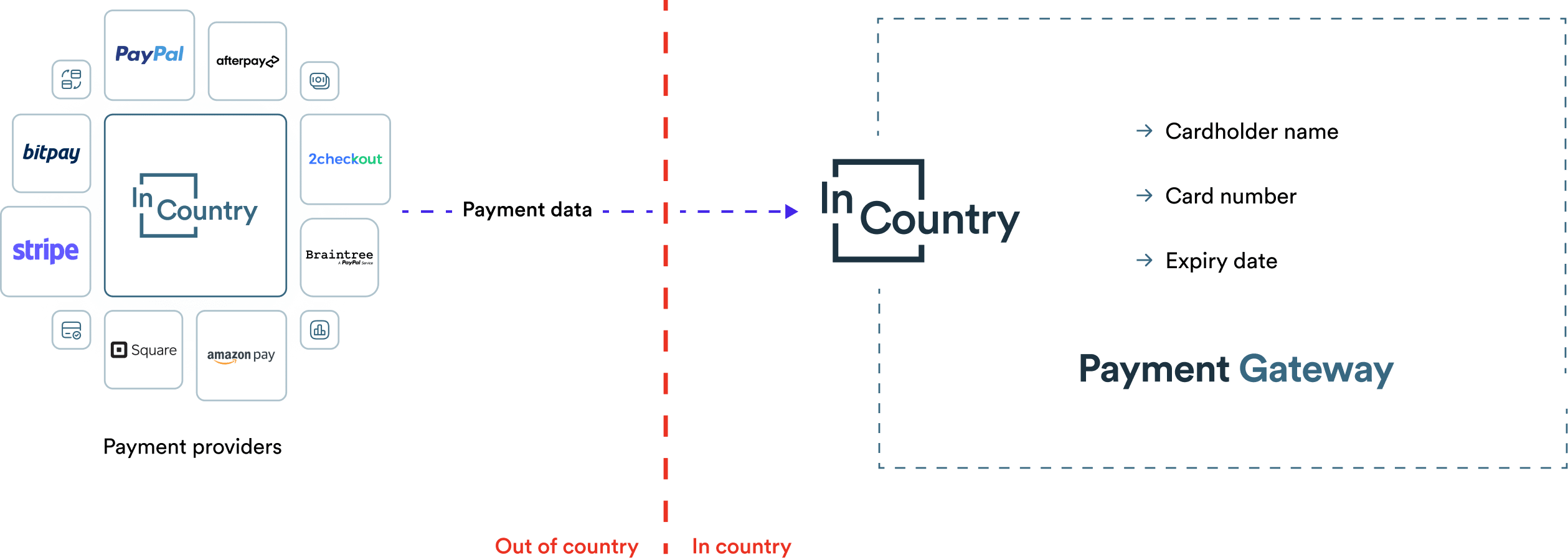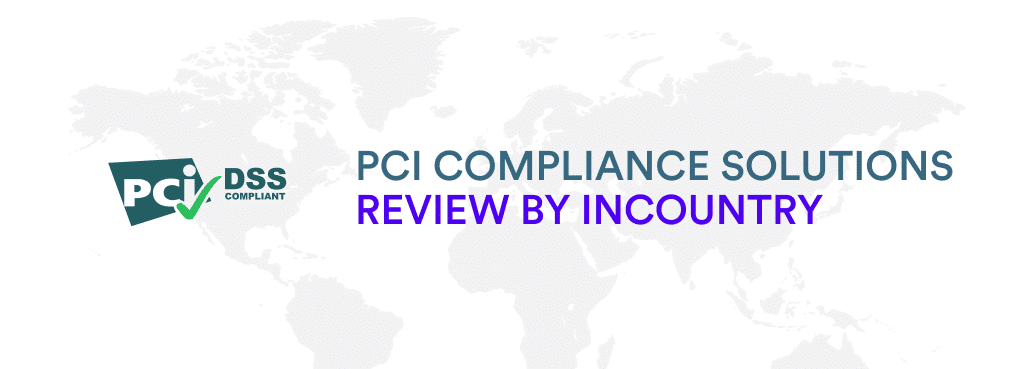Why is PCI Compliance Solution Important?
Keeping cardholder information safe isn’t just important for consumers, but also for merchants. If debit or credit card information is stolen from the merchant side, the company will likely face penalties or legal action.
Imagine a scenario where a business ignores PCI compliance and stores cardholder data in a location with weak information security controls (probably because this is the cheaper option), and that information is then stolen in a data breach. In addition to the customer being able to sue that company to recoup his or her financial loss, the PC Security Standards Council can also impose massive penalties on that company.
In this blog you’ll learn how to become PCI DSS compliant and accept payments in new countries without any infrastructure changes – all with InCountry Payments as your PCI compliance solution.
By maintaining compliance, your organization protects itself from suffering a loss that could have devastating financial consequences. Furthermore, it ensures that your business is well protected, improving your credibility and instilling greater trust among your customers and business partners.
What Is PCI Compliance?
Founded to address the proliferation of payment card data breaches, PCI DSS (short for Payment Card Industry Data Security Standard) was developed by the Payment Card Industry.
Globally, PCI DSS is the minimum requirement for protecting cardholder data. It is established by the Payment Card Industry Security Standards Council (PCI SSC), which consists of American Express, Discover Financial Services, JCB International, MasterCard Worldwide, and Visa Inc. Organizations wishing to process, store, or transmit card data have to follow PCI DSS.
PCI Compliance Challenges
Providing security measures and data protection protocols to all aspects of your business is essential to PCI compliance. It is important to validate your existing security controls and to audit all of your sensitive data so you can identify any gaps or weak points.
Compliance management programs become more complex as your business grows. It is very likely that spreadsheets you may have used as a small business will become unmanageable as you expand, costing your program manager a significant amount of time and increasing the potential for non-compliance.
Compliance with PCI – is it mandatory?
Although compliance with the PCI DSS is not technically required by law, organizations operating in violation of it may face fines and penalties from the PCI Security Standards Council.
PCI Compliance: What is Required?
Compliance with PCI DSS requires organizations to adhere to 12 requirements. Please check our CPI compliance checklist to learn more about each one.
What does PCI Compliance Certification entail?
As soon as all the requirements and controls specific to each compliance level are met and validated, organizations will be able to certify their PCI compliance. PCI DSS is divided into four levels. Compliance levels and the level an entity belongs to depend on the number of transactions the company conducts per year.
- Compliance level 1 applies to entities processing more than 6 million real-world credit or debit transactions annually. To certify their PCI compliance, level 1 organizations must undergo an annual PCI assessment, which must be conducted by an authorized PCI auditor (called a Qualified Security Assessor, or QSA). Furthermore, they must submit to an external vulnerability scan by an Approved Scanning Vendor (ASV) every quarter.
- Entities processing between one million and six million credit or debit transactions annually are considered to be compliance level 2. Level 2 organizations must perform a PCI assessment every year using a Self-Assessment Questionnaire (SAQ). They may also need to perform quarterly external vulnerability assessments.
- E-commerce entities processing between 20,000 and 1 million transactions per year are considered to be compliance level 3. Organizations at level 3 must complete a PCI compliance assessment using the relevant SAQ each year in order to maintain their PCI certification. In addition, they may be required to perform a quarterly external vulnerability scan.
- Organizations with compliance level 4 process fewer than either 20,000 e-commerce transactions per year or 1 million real-world transactions. Using the appropriate SAQ, level 4 organizations must complete a PCI compliance assessment every year. The organization may also be required to conduct an external vulnerability assessment every year.
Any business can experience stress and uncertainty due to the many controls and penalties associated with PCI compliance. Even the most advanced organizations can find it difficult to maintain compliance, due to the costs and complexity involved, as well as the effort and expertise required to continually support and validate the compliance.
InCountry – your PCI compliance solution in 90+ countries
By using InCountry Payments, you can become PCI DSS compliant and accept payments in new countries without modifying your existing corporate infrastructure. This allows you to expand into new markets while remaining PCI compliant.
How does it work? Our solution enables the integration of payment processing, data distribution, and localization of payment data in the country of origin. The InCountry solution requires minimal changes to ensure PCI compliance and secure data retention no matter where you’re operating.

You can easily integrate InCountry Payments into your sales pipeline

Some of our solution’s other benefits and features:
- Meets the global PCI DSS industry standard
- Meets country-specific requirements for storing payment data
- Easily integrates into sales pipelines for your products or services
- Has a variety of security options for payment card data
- Allows businesses to expand globally without borders
- Minimizes investments as little as possible into PCI compliance
- Eliminates changes to your business operations or infrastructure
- Reduces the risk of local noncompliance
- Secures customer data against any potential threats
Contact Sales to learn more about customer use cases.


